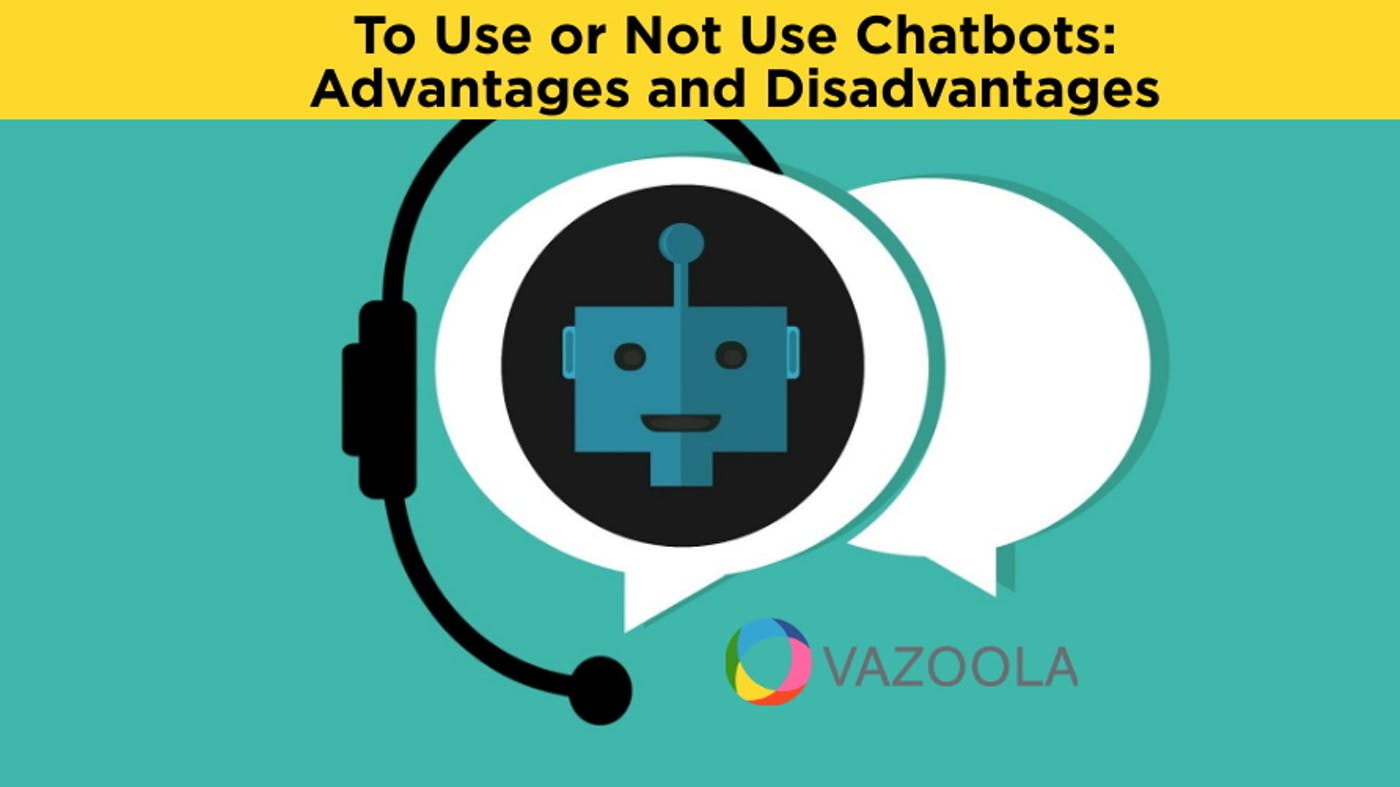To Use or Not Use Chatbots: Advantages and Disadvantages
Jul 27, 2020
Written by Casey Bjorkdahl

Casey Bjorkdahl is one of the pioneering thought leaders in the SEO community. In 2010, Casey co-founded Vazoola after working for a Digital Marketing Agency for five years in New York City. Vazoola is now one of the fastest growing and most widely recognized SEO marketing firms in the country.

Technological developments are changing the way the world does business. These advances are designed to help companies lower their costs and increase profits.
One such highly developed tool is chatbots. If you have interacted with a company via a chat interface, chances are good you have encountered a chatbot service.
Controlled by specific sets of rules and sometimes by artificial intelligence, these automated systems are the new darlings of customer service.
A survey shows that around 47% of companies will be using chatbots in the next few years.
While using chatbots for customer service may seem like an excellent idea for your company and your customers, there are some downsides to these mechanized services.
Here are some essential advantages and disadvantages of using chatbots to help you determine if they are right for your company.
Advantages of Chatbots
They are always available.
Consumers today have grown accustomed to quick service any time of the day or evening.
Since having around-the-clock customer service staff may not be feasible for many companies, chatbots can offer immediate responses to queries.
An answer, even though it is automated, can increase customer satisfaction with your company and build loyalty.
They can boost sales.
Chatbots online can increase sales. They respond to customer questions and issues immediately. This may encourage more people to respond positively to your marketing message and take the actions you want them to take, all the way to and including buying your products or services.
Chatbot services have multiple uses to help your bottom line. For example, they can also be used to market products by being programmed to contact consumers directly.
They reduce labor expenses.
You do not have to offer chatbots benefits as you do human employees, so they help keep labor costs low.
With reduced expenses, you ultimately boost your bottom line with higher profits.
However, before you hail chatbots as your ideal solution for customer engagement, carefully consider the drawbacks to connecting with consumers through programmed responses.
Disadvantages of Chatbots
They may discourage customers.
Sometimes customer needs are more complex than simple “yes” or “no” exchanges. If a customer is trying to ask a question about a potential purchase or resolve an issue with a purchase already made, they want helpful responses.
Since mechanical chatbots are limited to the data programmed within them, they cannot deliver complex solutions.
When consumers cannot get the answers they need, frustration is often the result. Consequently, they may look elsewhere to make future purchases.
They have no emotions.
While this may seem to be an advantage to you at first glance, customers may see it differently. Your product or service may be intrinsically emotional for some customers, or the problem they have might elicit strong feelings.
In these situations, human representatives are best suited to respond to volatile exchanges in ways that produce positive consumer experiences.
They can be expensive.
Building a chatbot takes expertise and time, both of which cost money. Furthermore, while chatbots do not care about benefits, they do need maintenance to function effectively.
You must analyze conversations with customers to update and broaden chatbot data. If you want to invest in AI-driven chatbots, the cost is even higher.
As with many things, convenience comes with a higher price tag, calling for investments of both time and money.
Another Caveat About Chatbots
Automated customer response systems are not for every company. The services of some businesses are far too complicated to use chatbots.
Firms offering multiple services in highly emotive fields cannot depend upon automated responses to handle customer needs. Such businesses include:
- Medical practices
- Attorney offices
- Funeral services
While machines are becoming increasingly multifaceted to interact with humans successfully, some customer service situations call for the finesse and feelings of fellow humans.
The Final Word on Chatbots
The rise of chatbots in modern customer service offers companies powerful benefits, and it provides some conveniences to consumers that can keep them coming back.
However, successful outcomes depend upon individual situations. Some customers prefer human interaction, especially if they have more complicated situations that require flexible, understanding solutions.
While automated chatbot responses can help some companies, they are not a universal panacea for the world of customer service. Some things still need the human touch.

